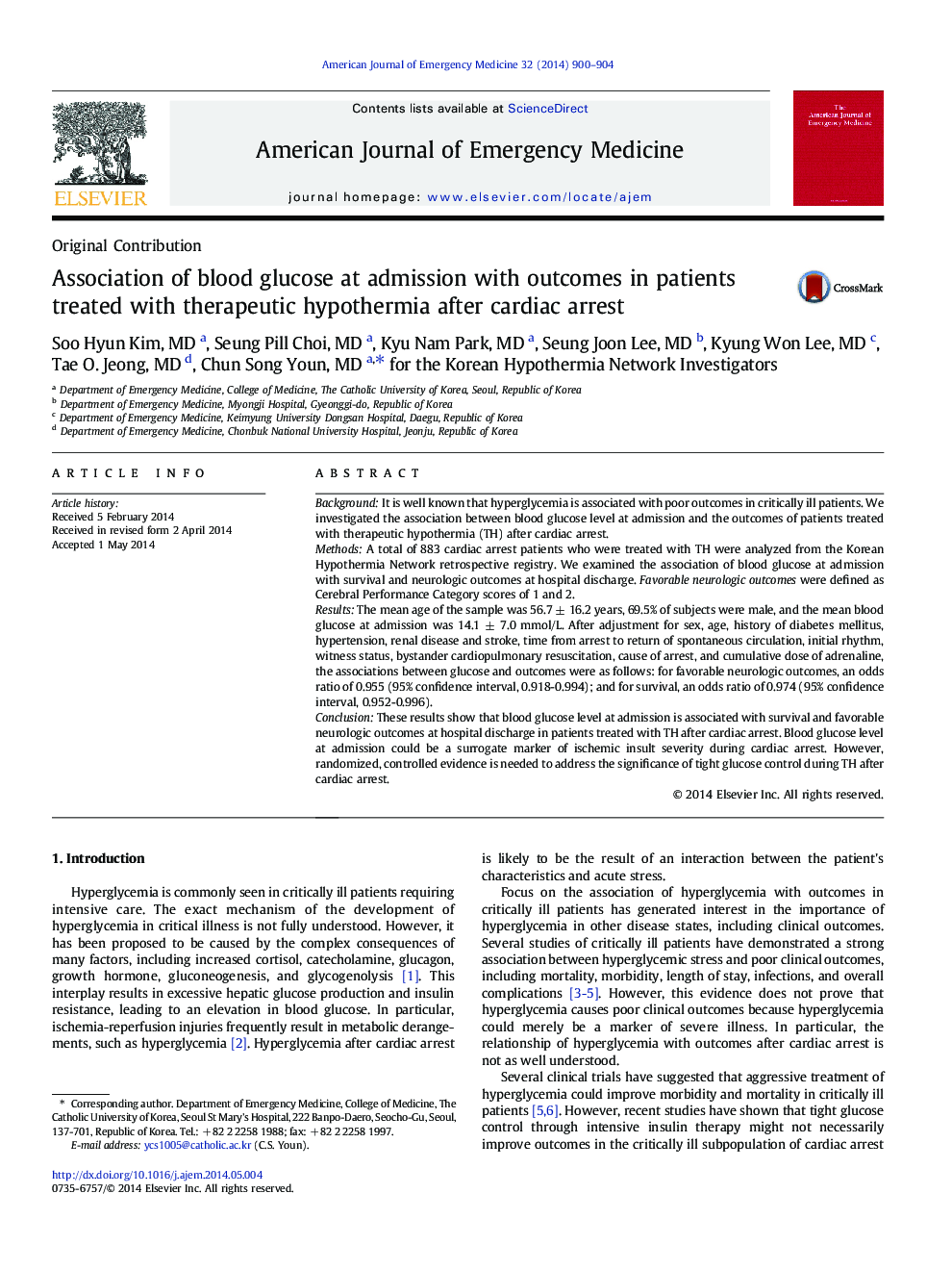| Article ID | Journal | Published Year | Pages | File Type |
|---|---|---|---|---|
| 3224398 | The American Journal of Emergency Medicine | 2014 | 5 Pages |
BackgroundIt is well known that hyperglycemia is associated with poor outcomes in critically ill patients. We investigated the association between blood glucose level at admission and the outcomes of patients treated with therapeutic hypothermia (TH) after cardiac arrest.MethodsA total of 883 cardiac arrest patients who were treated with TH were analyzed from the Korean Hypothermia Network retrospective registry. We examined the association of blood glucose at admission with survival and neurologic outcomes at hospital discharge. Favorable neurologic outcomes were defined as Cerebral Performance Category scores of 1 and 2.ResultsThe mean age of the sample was 56.7 ± 16.2 years, 69.5% of subjects were male, and the mean blood glucose at admission was 14.1 ± 7.0 mmol/L. After adjustment for sex, age, history of diabetes mellitus, hypertension, renal disease and stroke, time from arrest to return of spontaneous circulation, initial rhythm, witness status, bystander cardiopulmonary resuscitation, cause of arrest, and cumulative dose of adrenaline, the associations between glucose and outcomes were as follows: for favorable neurologic outcomes, an odds ratio of 0.955 (95% confidence interval, 0.918-0.994); and for survival, an odds ratio of 0.974 (95% confidence interval, 0.952-0.996).ConclusionThese results show that blood glucose level at admission is associated with survival and favorable neurologic outcomes at hospital discharge in patients treated with TH after cardiac arrest. Blood glucose level at admission could be a surrogate marker of ischemic insult severity during cardiac arrest. However, randomized, controlled evidence is needed to address the significance of tight glucose control during TH after cardiac arrest.
